
Austria - miscellaneous
For a full scale picture, please click on the picture shown !
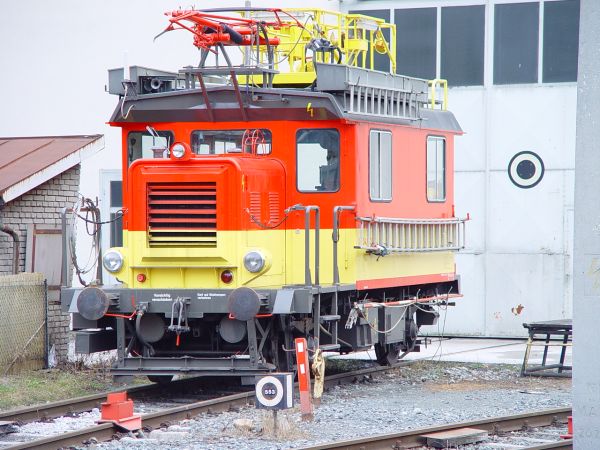
ÖBB class X534 catenary wire installation vehicle at Innsbruck Hauptbahnhof 5.1.2003. Picture by Ilkka Siissalo.
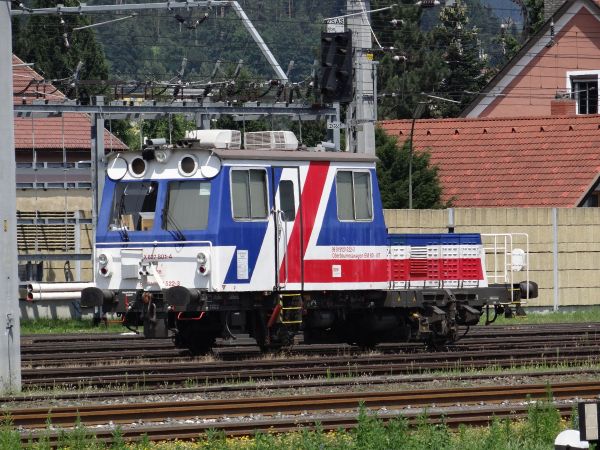
An ÖBB class X627 Oberbaumesswagen for measuring the rails, sleepers and the underlying gravel. This is built by
Plasser & Theurer since 1974 numbering 26. It weighs 42 tons - note the concrete ballast blocks. This one, no. 522
is from a series suited for extremely cold temperatures. It is also being used for pushing snowploughs. Photo at Villach station
6.7.2015 by Ilkka Siissalo.
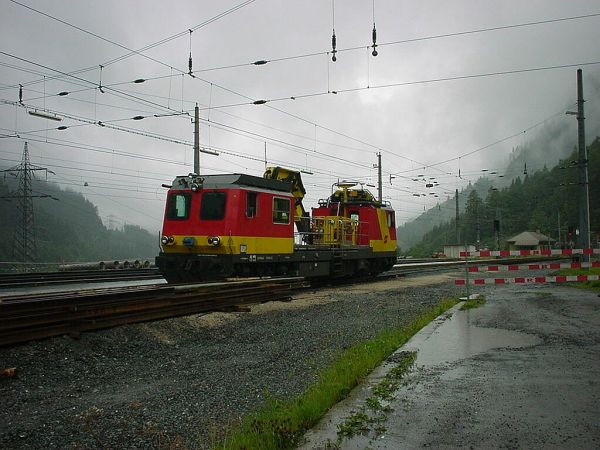
Catenary wire service wagon of ÖBB. Picture at Langen am Arlberg 6.7.2002 by Ilkka Siissalo.
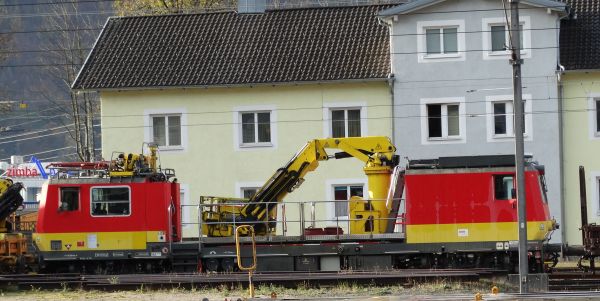
A multipurpose maintenance vehicle built by Plasser & Theurer. It's a modular construction. The middle section which is here an open platform can be exchanged
for a cabin as needed. In this configuration the vehicle is intended for the installation and servicing of catenary wires, but it could just as well be used
for example in moving new rails to where they are needed.
Picture from Bludenz 3.11.2022 by Ilkka Siissalo.
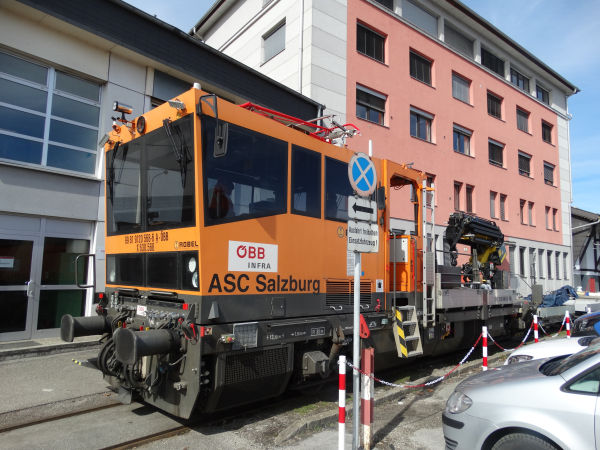
A modern class X630 rail truck of ÖBB Infra at Salzburg. It is a diesel powered train, but it has a pantograph for removal of frost and for
inspection purposes of overhead catenary wires. Similar rail trucks built by Robel are in use for example at SBB and BLS in Switzerland and
in many other places around Europe. Picture from Salzburg 15.3.2018 by Ilkka Siissalo.
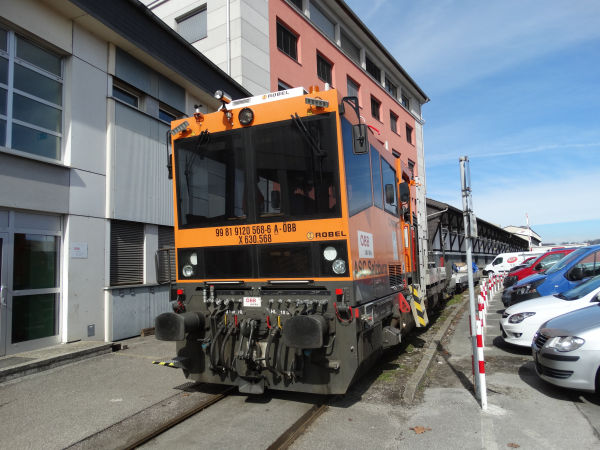
The same Robel Baureihe X630 rail truck as in the picture above, but seen from a different angle.
Picture from Salzburg 15.3.2018 by Ilkka Siissalo.
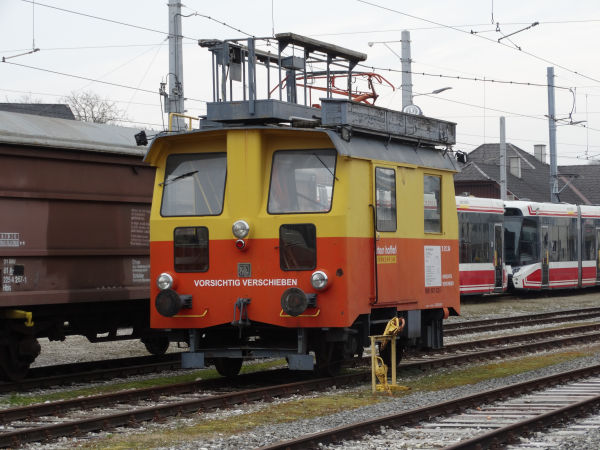
X512.04 catenary wire inspection and installation wagon (normal gauge) of the private railroad
company Stern & Hafferl. Picture from the Stern & Hafferlservice garage in Vorchdorf 15.3.2018 by Ilkka Siissalo.
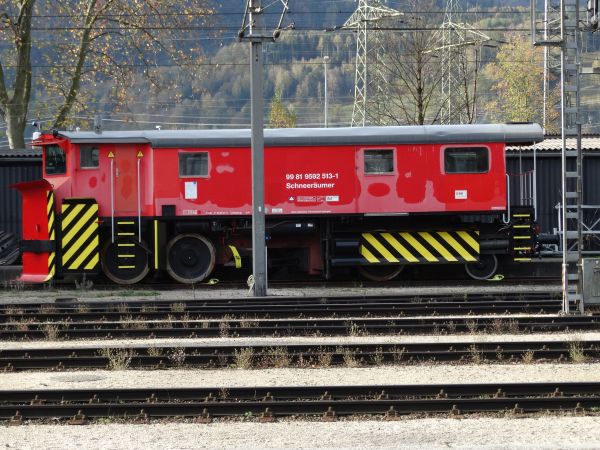
A very odd looking snow plough, ÖBB's Br9592. Sometime after the second world war the Austrians slaughtered some 35
of Hitler's Germany's so called Kriegslokomotiven, war locomotives, large steam locomotives. Only the very heavy
undercarriage and some of the axles with their extremely large wheels were kept and a new chassis was built for controlling
snow ploughs. These have no engines, they always need a powerful diesel to push them. The undercarriage taken from such a
steam loco has been installed here "the wrong way round"; the smaller wheels that normally would be at the front of a
steam locomotive are now facing back. It was actually possible to trace back from the register number of this plough
that the undercarriage of this monster was taken from a certain Br52 loco (52 2428) which had been built by Henschel in 1943. Even
the Henschel factory number of that individual Br52 could be traced.
Picture from Bludenz 3.11.2022 by Ilkka Siissalo.
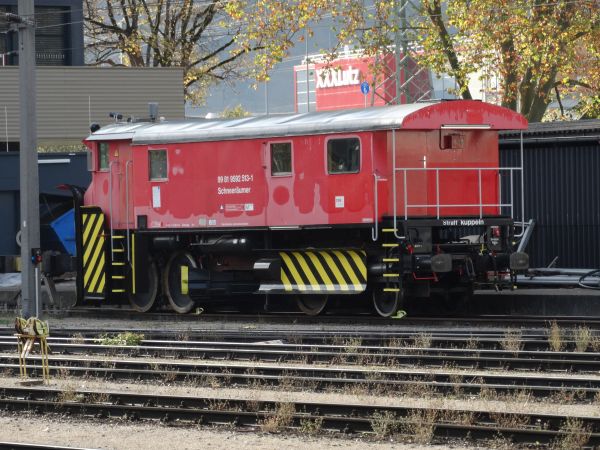
The same snow plough as above seen more from behind. The text at the back "straff kuppeln" urges to couple this to a locomotive
very tightly so that it shouldn't bend between the plough and the pushing diesel locomotive.
Picture from Bludenz 3.11.2022 by Ilkka Siissalo.
Funiculars
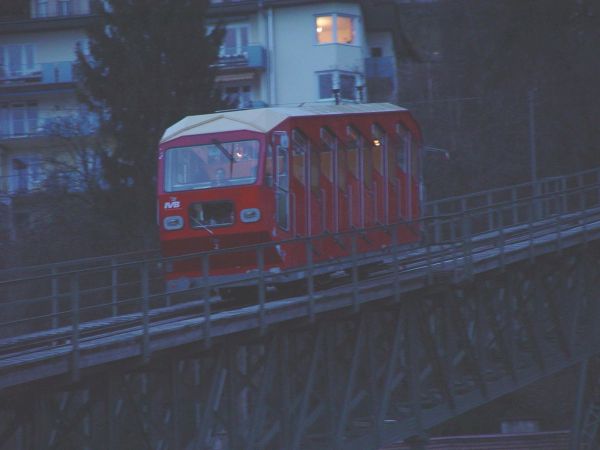
This funicular railway which begins by the old town of Innsbruck and climbs up on the hillsides is called Hungerburgbahn. There is a
cable car continuing further up from the uppermost station of this funicular.
Picture from Innsbruck 7.1.2003 by Ilkka Siissalo.
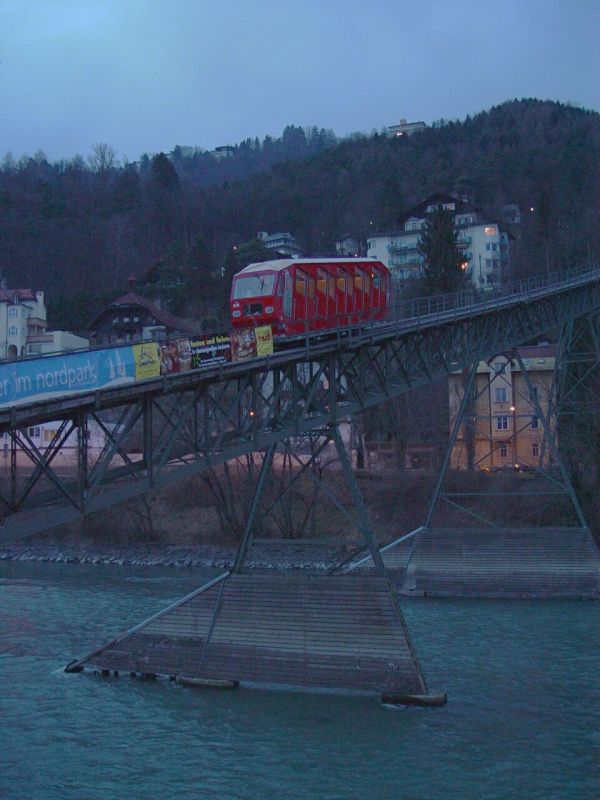
Here the Hungerburgbahn funicular is crossing the river Inn while descending down to the old town of Innsbruck.
Picture from Innsbruck 7.1.2003 by Ilkka Siissalo.
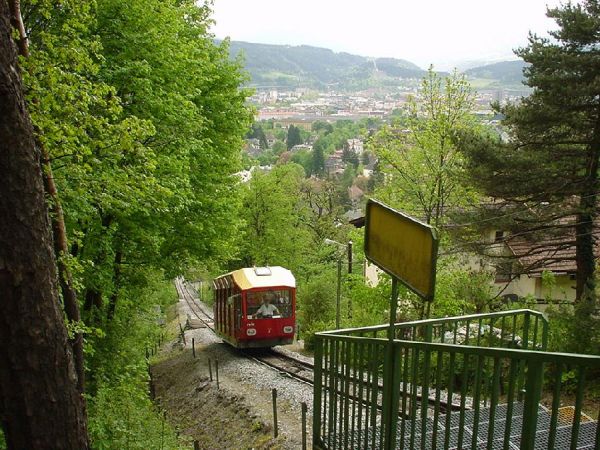
The same Hungerburgbahn funicular in Innsbruck in the year 2000.
Picture 16.5.2000 by Sanna Siissalo.

